Big Street, The (1942)
“Love is something that gives you one room, two chins, and three kids.”
|
Synopsis: |
|
Genres, Themes, Actors, and Directors:
Review: — but it’s challenging to feel much enthusiasm for hapless Fonda, whose blind adoration simply comes across as tragically misplaced gallantry. Ball’s character is intentionally bitchy, and despite her brutal accident, we don’t feel much sympathy for her until the very end: In fact, as written, she’s a downright unpleasant character to spend time with. According to TCM’s article, Andy Warhol apparently referred to this as “the sickest film ever made”, and I suppose that case could be made — it’s easy to imagine John Waters turning this into an even darker and blacker “comedy”, starring Divine in the leading role. Redeeming Qualities and Moments: Must See? Links: |
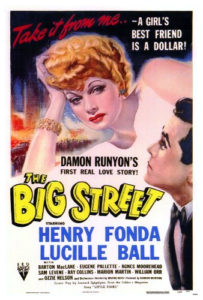
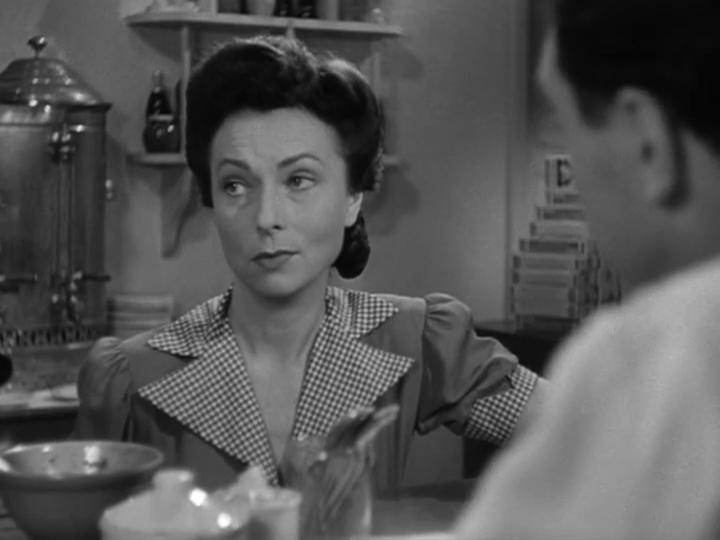
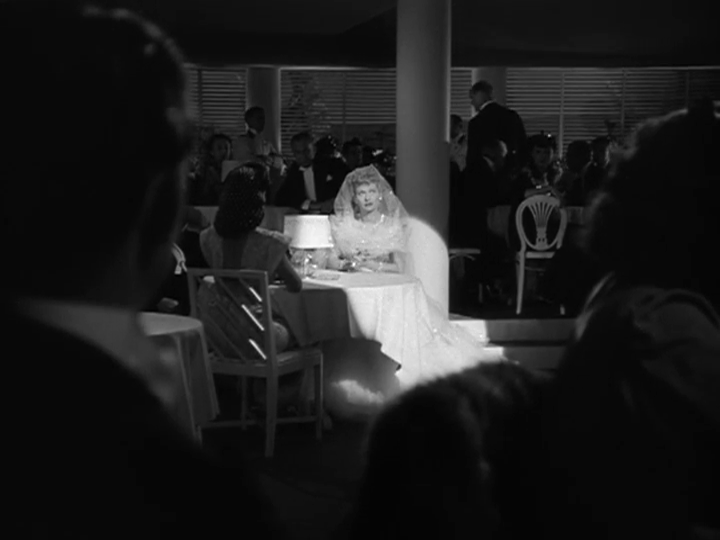
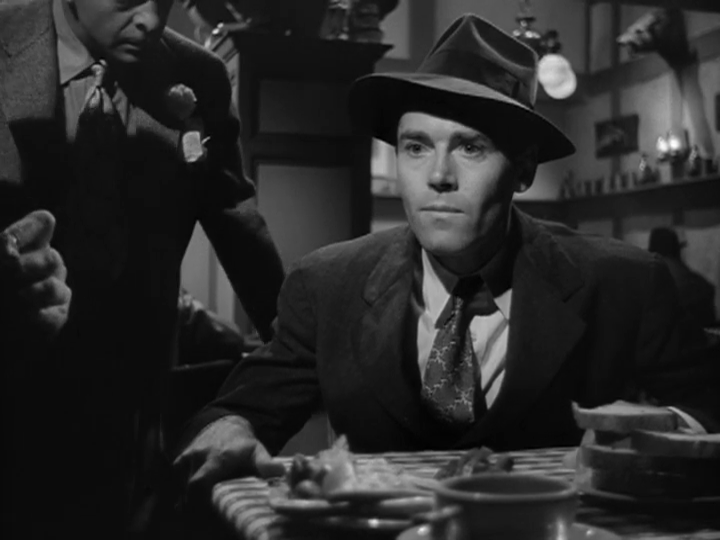
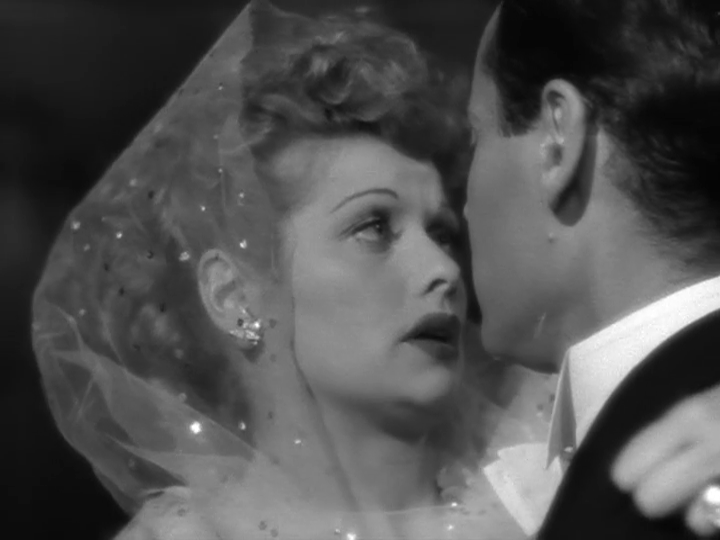
One thought on “Big Street, The (1942)”
Not must-see. It’s not actually all that enjoyable.
I’d seen this once before and had completely forgotten it (never a good sign). We’re in Runyon’s ‘Guys and Dolls’ territory here (Nicely-Nicely is even here as a character) but this is nowhere near as much fun as the musical – not even close. Even allowing for Runyon’s ‘misfit fantasy’ premise, the story and its progression strain credulity (to say the least).
The unlikely relationship between Fonda and Ball is nagged by the fact that it simply makes little sense. She’s a complete mess yet, for some inexplicable reason, he worships her. When she meets with an accident that cripples her, he sees to it that she gets to Miami for her health (like Ratso Rizzo in ‘Midnight Cowboy’ – only she actually gets there) – yet he’s still almost constantly treated like a doormat. He wants SO badly to believe in her – based on very very rare glimpses of humanity… and it all gets to be such a… stretch. Even when she briefly seems human, she’s still self-serving.
Moorehead is largely the film’s saving grace – and, gee, it’s nice seeing Agnes in such a pleasant change-of-pace. But she’s not in the film enough (to suit me, anyway).
The emotion of the film’s conclusion doesn’t feel all that plausible (it’s a nice, ultimately over-the-top try).